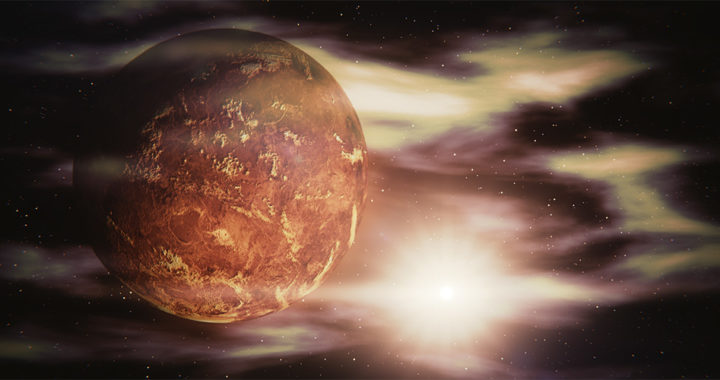Mercury is the nearest planet to the Sun. It orbits at an average distance of 58 million kilometers. However, despite this proximity, Venus remains the hottest planet in the Solar System. It is about twice as far from the Sun of average as Mercury. Specifically, it orbits at an average distance of 108 million kilometers. Still, it is hotter in Venus during a Venusian midnight than at Mercurian high noon. Why exactly is Venus hotter than Mercury?
Explainer: Why Is Venus Hotter Than Mercury?
The Factors Affecting Temperature in Venus
One of the primary reasons why Venus is hotter than Mercury is the different atmospheric composition of these two planets.
Mercury actually lacks an atmosphere. The surface facing the Sun experience a maximum temperature of 425 degrees Celsius while the opposite surface cools down to -193 degrees Celsius. The lack of atmosphere allows radiation or heat to escape from the planet, thus cooling it down at night.
On the other hand, Venus has a thick atmosphere that traps the heat coming from the Sun. In fact, this planet has the thickest atmosphere in all terrestrial planets of the Solar System. Temperature averages at 462 degrees Celsius.
It is also important to note that the atmosphere of Venus is composed mostly of carbon dioxide—a greenhouse gas. The planet absorbed the radiation from the Sun, and the emitted infrared is trapped by the CO2, thus creating a runaway greenhouse effect.
The thick CO2 atmosphere of Venus also means that it has incredibly high pressure. The Soviet sent out spacecraft to explore the planet. However, due to extremely high temperature and pressure, it only lasted a few hours.
Another reason why Venus is hotter than Mercury is that it is shrouded by an opaque layer of highly reflective clouds of sulfuric acid. Both the thick atmosphere of the planet composed of carbon dioxide and the shroud of thick sulfuric acid clouds make Venus highly absorbent of radiant heat from the Sun.





